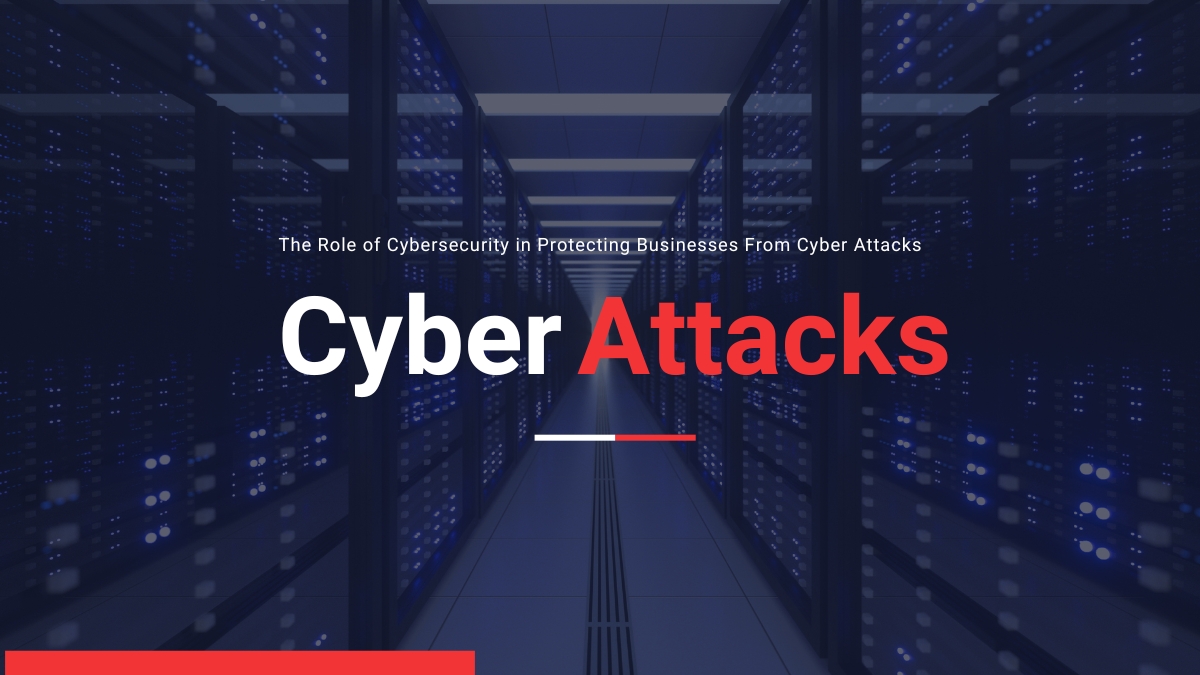
Cybercrime is a rapidly growing problem, affecting businesses of all sizes, across all industries. Hackers and cybercriminals are constantly devising new and sophisticated methods to steal sensitive information, disrupt operations, and damage reputations. In today’s digital world, it’s more important than ever for businesses to invest in strong cybersecurity measures to protect against these threats.
The role of cybersecurity in protecting businesses from cyber attacks is critical. Cybersecurity refers to the practices, technologies, and processes that organizations implement to secure their digital assets and information systems. These assets can include sensitive data such as customer information, financial records, and intellectual property, as well as the systems and networks that support business operations.
Cybersecurity can help prevent cyber attacks in several ways:
1. Protecting Sensitive Data:
Businesses must protect their sensitive customer data from cyber attacks, as it can lead to serious financial losses and loss of trust. Cybersecurity is the process of protecting data using cutting-edge technology such as encryption, identity management systems, access control systems, and monitoring systems. It involves taking several measures to prevent unauthorized access to networks and devices that store company information. Companies need to ensure that all employees understand cybersecurity practices and policies so that everyone is aware of the risks associated with mishandling sensitive data. Additionally, businesses should invest in the latest security solutions and strategies to protect their digital assets from potential malicious activity. By taking proactive steps toward cybersecurity protection, organizations will be able to safeguard their valuable customer information from hackers and other cybercriminals. In today’s technologically advanced world, businesses need to prioritize cybersecurity to remain productive and secure while staying compliant with relevant regulations.
2. Preventing System Disruptions:
In today’s digital age, businesses of all sizes and industries must take steps to protect their systems from cyber threats. Cyber attacks can cause significant disruptions to business operations, including system failures and downtime. Companies must invest in strong cybersecurity measures to prevent system disruptions caused by cyber threats.
A successful security strategy involves the implementation of multiple layers of defense that work together to detect and protect an organization’s networks, devices, applications, data, and users from malicious activity. The cybersecurity measures that should be taken include regularly updating software and hardware components; performing regular vulnerability scans; enforcing policies for secure passwords; implementing two-factor authentication (2FA); using encryption technologies; monitoring network traffic with firewalls; restricting employee access to sensitive information; training employees on safe online practices; investing in threat detection solutions; and establishing a clear incident response plan.
3. Maintaining Reputation:
Maintaining a positive reputation is essential for any business. Cyber attacks, such as data breaches, can have a devastating effect on the reputation of a company. It can be difficult to recover from the loss of customers and revenue that often accompanies such an attack.
Fortunately, there are steps businesses can take to protect their reputation from cyber attackers. Implementing strong cybersecurity measures is one of the most important ways to ensure that customer information remains safe and secure. Companies should also prioritize staff education about cybersecurity protocols to help prevent malicious cyber activity. Additionally, having quick response plans ready for when an attack occurs is critical in minimizing damage to both customer trust and brand reputation during times of crisis. By following these tips and staying vigilant against potential threats, businesses can do their best to protect themselves from reputational harm caused by malicious cyber activity.
4. Compliance with Regulations:
Cybersecurity is a major concern for businesses today, as attacks on digital systems and infrastructure can have disastrous effects. For many industries, compliance with cybersecurity regulations is required to protect the business from cyber attacks. Regulations are in place to ensure that companies take the necessary steps to keep their networks safe, secure, and compliant with industry standards.
One of the most important aspects of cybersecurity regulation is information security management. Companies must develop a comprehensive security program that includes policies and procedures for protecting data and systems against unauthorized access or manipulation. This includes implementing measures such as user authentication, encryption technology, firewalls, and anti-virus software to protect customer data from malicious actors. It also requires regularly updating software and hardware used by employees to ensure they are up-to-date with current security patches.
Investing in cybersecurity is essential for businesses of all sizes, and it should be a top priority for organizations that want to protect their assets and operations from cyber threats. Implementing strong cybersecurity measures can help prevent cyber attacks, protect sensitive information, maintain a positive reputation, and comply with regulations.
In conclusion, cybersecurity is crucial for protecting businesses from cyber attacks and ensuring the safety of digital assets and information systems. By investing in strong cybersecurity measures, businesses can prevent cyber attacks, maintain operations, and protect their reputation.